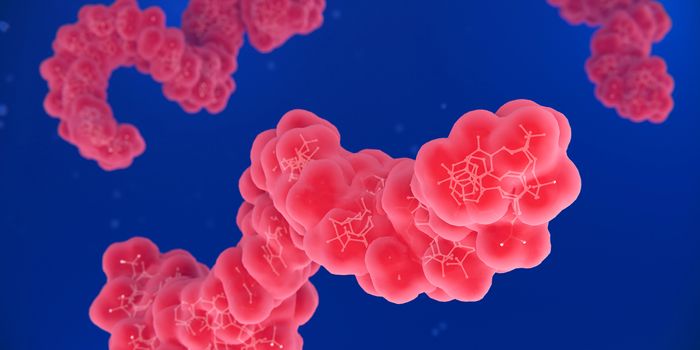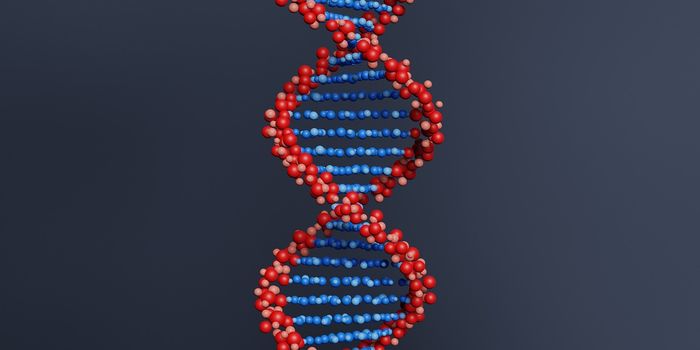Examining the Link Between Autophagy and Aging
A basic cellular process called autophagy is critically important to the cell, and has been linked to many diseases of aging like heart disease and cancer. Now, researchers at Sanford Burnham Prebys Medical Discovery Institute (SBP) have performed a detailed analysis of the process as a living animal ages. For this work, which was published in eLife, they used a common aging model, the roundworm, which is described in the following video.
"Increasingly, researchers are asking whether there is an age-related decline in autophagy and if it's connected to diseases that occur more frequently in older individuals," says Malene Hansen, Ph.D., professor in the Development, Aging and Regeneration Program at SBP. "Exposing how autophagy becomes faulty with age may reveal opportunities for us to therapeutically intervene and correct the process to promote health aging."
Cells have to take out the trash, removing bacteria and viruses and waste, and recycling cellular components through autophagy. During the process, sacs in the cytoplasm of the cell - an isolation membrane (IM) - that take in debris; they then expand into autophagosomes (APs). The APs join with cellular organelles called lysosomes and an autolysosome (AL) is born, which recycles material, breaking it down for reuse. The multi-facted nature of the process has made it difficult to understand.
"A major challenge with understanding how aging impacts autophagy is that researchers have been capturing a dynamic process with static measurements," explained first author Jessica Chang, Ph.D., a former postdoc in Hansen's lab. "Autophagy is most commonly monitored by counting the number of APs, which really only provides a snapshot of the process--similar to how counting the number of garbage trucks on the street doesn't tell you how much garbage is actually being recycled at the plant. And typically older organisms have an increased number of APs, but we don't know exactly why."
Related: Yoshinori Ohsumi Awarded Nobel Prize in Medicine for Autophagy Work
"We wanted to ask how age impacts autophagy--is it at the beginning of the process by increasing the rate at which APs are formed, or, by analogy, how many garbage trucks are rolling out on the street--or is it at the end of the process by blocking the conversion of APs to ALs, i.e., how much recycling is taking place at the recycling plant. Either one of these scenarios would cause an increased number of APs, but knowing which one would help pinpoint where interventions may be helpful," said Chang.
"Like many labs, we use C. elegans--a tiny roundworm--as a model organism to reveal important lessons about aging and autophagy," Hansen noted. "C. elegans is a powerful tool for biological research because it shares many of the same anatomic and cell functions as humans, and their short lifespan (average 17 days) enables us to study genes and measure cell traits in just two to three weeks."
While it’s been suggested by Hansen’s team and others that during aging, AP level go up, but the mechanisms behind that increase was a mystery.
This new work tracked AP levels much more carefully. The researchers did not evaluate AP levels in a static condition, but instead counted AP and AL numbers in several tissues at various points over the adult C. elegans life. The team also utilized blockers to reveal more about the process.
"We found that there is indeed an age-dependent decline in autophagy over time in all tissues examined. We further provide evidence that the increase in APs results from an impairment at a step after APs are made." said Hansen. "So basically the autophagy recycling process becomes incomplete with age by stopping somewhere after APs are formed.
"This research is important because it helps provide time- and site-of-action information for potential future interventions directed at sustaining autophagy to extend lifespan. Our next step will be to perform biochemical research to further pinpoint exactly how autophagy fails to complete its cycle, possibly providing targets to develop specific interventions.
"Our goal is to find links between autophagy and age-related diseases. By identifying distinct points in the process that fail, we hope to find ways to correct the defects and find ways to help people live longer, healthier lives," Hansen concluded.
Learn more about autophagy from the video.
Sources: AAAS/Eurekalert! via SBP, eLife









